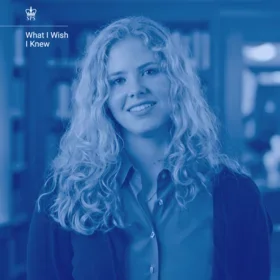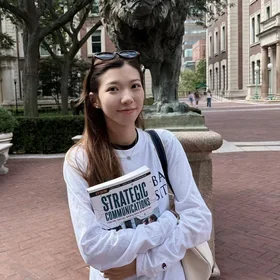Jason Papier, Managing Partner at Werba Rubin Papier Wealth Management LLC, is a student in the inaugural cohort of Columbia's Wealth Management program. He discusses how his background in tech led to the launch of his own wealth management firm, what he is learning in the program, and his role sitting on the board of a nonprofit.
What drew you to Columbia's Wealth Management program?
I’ve learned that a person who has worked for 20 years in an industry can truly have 20 years of experience, or they can have one year of experience repeated 20 times. The difference, of course, is how you are growing.
I have gone to conferences, read books and journals, joined mastermind groups, and hired consultants, but I wanted to keep progressing. I decided a master’s was the next step, so I began looking at the available programs. When I read the course descriptions, looked at the professors, and viewed the academic reputation of each institution, Columbia was head and shoulders above the rest.
What are you enjoying most about the experience?
To be honest, I was a little worried about how I would be able to connect with my classmates, given the global online nature of the program. As it turns out, that has been one of the highlights. It’s an honor to work with such an accomplished cohort and we couldn’t be more supportive of one another.
Tell us about your career path and what led to founding Werba Rubin Papier Wealth Management.
In the late ’90s I was working at a Silicon Valley venture-backed startup. After some soul searching, I decided I wanted to become a financial planner, but had no experience. I found an RIA and a mentor and offered to work for free so that I could learn not only how to practice financial planning, but how to run this type of business.
Seven years later I started my own firm, Fluent Wealth Partners, and began to build out my practice, in part, by working with tech executives from the types of companies I had previously worked for. To gain greater capacity and bench strength, I merged with my current partners at WRP Wealth in 2017. Shortly after, we started WRP Tax to further support our clients. We’re now one of the largest RIAs, by assets, in the Silicon Valley.
What type of skills are you learning? Are you applying them?
One of the courses I really enjoyed was financial psychology. As planners, we see the same types of client behaviors regularly. This class helped me to understand why people have certain biases and led me to think more scientifically about how to successfully navigate those waters.
Our Wealth Management Landscape class has been another course that has added immediate benefit. Having worked only as an RIA, I didn’t fully understand the business drivers for private banks and brokerages. Now, when a prospect is interviewing other planners, I know what my competitors are thinking and how they’ll present their service offerings.
Can you tell us about your experience as the Chair of the Board of the San Jose Public Library Foundation?
Those who sit on non-profit boards share the belief that their success allows them to give back. I’ve met some wonderful people and deepened my community ties through board service over the years.
The SJPLF supports one of the biggest library systems in the country, with 26 branches. These days, libraries are less focused on checking out physical books and more focused on the process of learning. For instance, one of the big pushes prior to COVID, which has become even more acute during the pandemic, is trying to close the digital divide. Even in heart of the Silicon Valley there are thousands of students without access to at-home computers and high-speed internet. We have raised money and received in kind donations so our residents can check out laptops and hotspots, staying connected and informed.
What advice would you give future students in the program?
Because of the nature of the program, you’ll find yourself with other high achieving professionals. Make sure to take full advantage of this by sharing your knowledge and learning from their experiences. Develop lifelong relationships and support one another’s growth. Ultimately, we all benefit from the success of the members of this program.
Learn more about Columbia's Wealth Management program.


